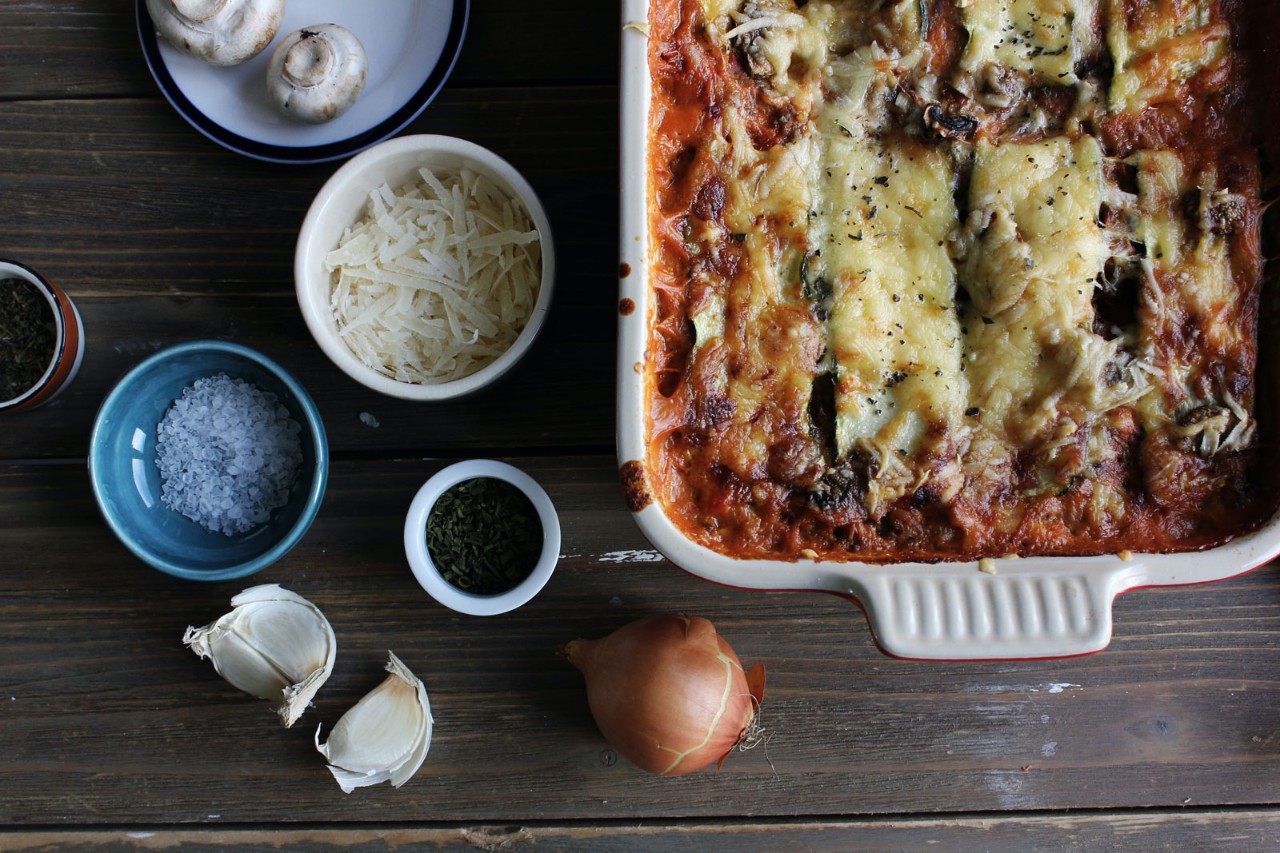Meat substitutes: good for the environment – and your health?
Meat substitutes such as vegan chicken, vegan salami and vegan mince are currently all the rage. But how healthy are they? We asked an expert.

Producing 1 kg of Swiss beef emits 12 to 13 kg of CO2 equivalents. This figure falls to just 0.7 kg for lentils, 0.5 kg for apples and 0.2 kg for tomatoes. That’s why more and more people are reducing their meat consumption to protect the environment. Supermarkets have spotted the trend and have expanded their vegan range in recent years to include, for example, plant-based chicken, mince made from pea protein and vegan cold cuts aimed primarily at environmentally-conscious omnivores. The target group: environmentally conscious omnivores. Meat substitutes offer a simple way to help us change our habits. Anyone who loves spaghetti bolognese doesn’t have to do without thanks to plant-based mince products. The same applies to the salami pizza or the grilled chicken skewer. However, anyone who buys these products regularly or who wants to try them out needs to be aware of a few key points.
How healthy are meat substitutes?
There is no simple general answer to this question. “because the quality of the products is as varied as the range on offer,” says Annina Pauli, nutritionist (BSc BFH, SVDE) from the Zurich Nutrition Centre. Whether the product you buy is healthy or not depends largely on the degree of processing, to name just one factor. “When buying meat substitutes, bear the following points in mind: Does the product contain enough protein? For example, is it based on soy or pea protein? How is it seasoned? Does it contain stabilizers? Is it breaded or fried?”, says the expert.
If you want to know more, take a look at the list of ingredients. “Often the products contain a relatively high amount of fat, various added sugars such as maltodextrin and glucose, flavourings, colourings and thickeners.” However, new start-ups like the ETH spin-off Planted show that meat substitutes can be made out of all-natural ingredients with no additives or flavourings. Nikola Baumschlager from Planted explains that their product is made with just four natural ingredients. “Our planted.chicken is made of peas, rapeseed oil, water and a healthy amount of vitamin B12”.
What to look for when buying meat substitutes?
It is often difficult for laypeople to classify the ingredients correctly. As a general rule, the fewer ingredients, the better. It is also easy to look for fat, protein and sugar content. "Basically, you should ask yourself whether the vegan plan can keep up with meat when it comes to protein content. The following applies: 1 gram of protein per kilogram of weight per day," says the expert. It is also worth taking a closer look at the fat content on the packaging. "This should be less than 10 grams for a portion size of 100 grams. The following applies to sugar: wherever possible, it should be avoided - as long as it is artificial sugar. All plant-based products are partly based on carbohydrate structures, which are also shown as sugar in the nutritional information. However, these are harmless.”
Planted sets a good example by ensuring that no artificial sugar is added to its products, and the plant-based chicken has 24.2 g of protein per 100 g, which is more than chicken itself.
The movement started in 2014 in the United Kingdom. In 2021, “Veganuary” encouraged almost 600,000 people worldwide to try eating a plant-based diet in January. Making the switch is easier with items that replace animal products, such as those from Planted, V-Love, Beyond Meat or The Green Mountain. “We want to make it as easy as possible for people to eat less meat”, says Nikola Baumschlager from Planted. The idea is not for people to give up meat entirely, but to reduce their consumption and be aware of how the production of meat and dairy products impacts the environment. Baumschlager, who has looked at the science behind meat substitutes, explains: “Every one of us can do their bit to help protect the environment. Diet is a small step that has a tremendous impact.” She has a few tips and ideas for people who are very reluctant to give up meat:
- Use meat substitutes so that you can cook your favourite meals without restrictions
- Weekday vegetarian: adopt a vegetarian or vegan diet during the week
- Eat mostly vegan meals at home and “reward” yourself by eating meat and dairy products when you go out
- Replace meat or dairy-based breakfast products with vegan alternatives (e.g. scrambled tofu or porridge with non-dairy milk)
What are the pros and cons of meat substitutes?
It depends a lot on the specific product and its composition: the more processed a product, the less healthy it is. Pauli recommends that her clients opt for products that are as natural as possible. “Tofu, tempeh and seitan are good choices”. As are meat substitutes made from all-natural ingredients.
Pauli also highlights the benefits for the environment. “Although some of these products have a high fat content, which is not necessarily recommended from a nutritional point of view, products that contain coconut oil or palm oil are still better for the environment than meat.” What’s more, meat substitutes contain no cholesterol, but they do contain fibre, which has a positive impact on digestion. “These products therefore keep you fuller for longer, regulate blood sugar levels, reduce cholesterol and help with constipation.”
Are the products suitable for allergy sufferers?
“Anyone who suffers from allergies has to pay special attention to the list of ingredients,” says the dietician. In fact, she goes one step further and advises people who are allergic to several foods, such as soy and nuts, not to follow a vegan diet.

Annina Pauli is a qualified nutritionist (BSc) and works at the Zurich Nutrition Centre. Her areas of expertise include child and family nutrition as well as vegetarian and vegan nutrition.


